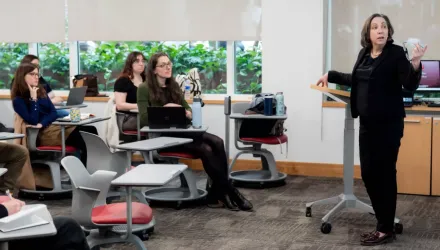The Role of Intelligence in Foreign Policy as Illustarted by the Iran Deal
The contribution of intelligence to foreign policy goes beyond the common view of predicting and/or preventing events for policy-makers. Instead, as this research has highlighted, the intelligence community creates valuable knowledge that must be efficiently circulated and used in order to be useful. Intelligence and diplomacy are complementary through the whole process, from the moment that an Administration decides that negotiation is the preferred outcome.
In a traditional view, the decision-maker receives input from different government agencies, and makes choices resulting from the synthesis of these inputs, including intelligence. Intelligence will routinely produce analytic papers for a wide number of recipients, but no real dialogue will be engaged in this mostly unidirectional process. The relationship is between a producer and a consumer. In this industrial paradigm of government, derived from the concept of division of labor, specialized agencies are part of a supply chain, providing spare parts to other agencies assembling them into a policy.
Although this paradigm revolutionized 20th century industry, it is not ideally suited to a modern government facing post-industrial problems like terrorism, proliferation, or the instability of world economic markets.



